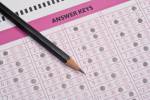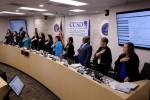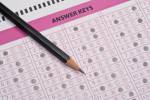Social promotion: Legislature must pass bill to end it at schools
Education funding will be a primary focus of the 2013 Legislature. If majority Democrats call for higher taxes, they’ll do so with the goal of boosting spending on Nevada’s public schools.
But money alone won’t lift Nevada’s poor record of achievement and awful high school graduation rates. Much of Nevada’s struggles are rooted in poor education policy. Reforms must be part of the Legislature’s education agenda, and no single reform is more important than Assembly Bill 161. The legislation, which has its first hearing Wednesday at 3:30 p.m. before a joint meeting of the Assembly and Senate education committees, would halt the practice of social promotion by blocking the advancement of students to the fourth grade if they can’t read.
For too long, Nevada students have been set up to fail in middle school and high school because they were promoted to higher grades despite lacking the most basic proficiencies. As coursework becomes more challenging, these demoralized students fall further behind. Worse, most of these students receive passing grades all along the way, leading them and their parents to believe they’re doing fine.
AB 161 does far more than institute a third-grade reading test that can decide whether a student moves forward. It requires schools to identify students in kindergarten through third grade who are not proficient in reading, notify parents that their kids are at risk of being held back, and provide these children with intensive, specialized reading instruction. Brutal honesty with parents and early interventions are far better courses than sugar-coating failures with inflated report cards and offering remediation in high school, when it’s all but too late.
Republican Gov. Brian Sandoval sought such legislation in 2011, but Democratic leadership refused to include it among a handful of reforms that were part of a budget compromise. This year, however, Democratic lawmakers have expressed support for the idea. That certainly bodes well for its chance of passage.
The bill’s language, however, presents some concerns. The passing score on the reading test would be determined by the Teachers and Leaders Council of Nevada, a panel of appointees that has worked on new teacher evaluations. That council lacks private-sector leaders, and instead is stacked with teachers, education administrators and school board members. If the panel sets a passing score that’s equivalent to first-grade proficiency, the exam will be a fraud.
Additionally, the legislation allows several exemptions, including one for students who demonstrate “through a portfolio of work proficiency in reading at grade level.” That’s an exceptionally subjective judgment for a measurement that’s supposed to be objective.
This reform is needed to hold schools, students and parents accountable for shortcomings in reading education. It’s not just a test of third-grade proficiency. It’s a test of the entire public education system. Anything that waters down accountability defeats the purpose of passing the reform in the first place.























